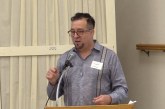
 By David M. Greenwald
By David M. Greenwald
Executive Editor
While the Little Hoover Commission believes that CEQA (California Environmental Quality Act) “remains an essential tool to protect the state’s environment” a report released on Wednesday argues it “can be improved through targeted, limited reforms.”
The new report, CEQA: Targeted Reforms for California’s Core Environmental Law, recommends six reforms to CEQA, including a raising of the standing requirement for filing a CEQA lawsuit, a restriction on late submission of public comment, and a broad exemption for infill housing. The Commission also recommended in-depth study of several issues related to CEQA.
CEQA was signed into law in 1970 with the goal of protecting and enhancing the environmental quality of California. It requires agencies to review projects to assess potential impacts to the environment, disclose those impacts to the public, and mitigate them to the extent possible. CEQA has been an important player in countless environmental victories, especially in disadvantaged communities that often bear the brunt of negative environmental impacts.
“CEQA is a successful landmark law that gives Californians a voice in how best to protect our great state,” said Commission Chair Pedro Nava. “With this report, the  Commission seeks to identify small adjustments that could be made to help improve CEQA and ensure it is accomplishing what it was meant to.”
Commission seeks to identify small adjustments that could be made to help improve CEQA and ensure it is accomplishing what it was meant to.”
In March of 2023, the Little Hoover Commission launched a study to review California’s bedrock environmental law, the California Environmental Quality Act.
In a letter from Chair Pedro Nava, a former Democratic State Senator, he noted, “California’s environmental landscape has incalculably benefited from CEQA, which requires agencies to review proposed projects to assess potential impacts to the environment and mitigate those impacts to the degree feasible. This law must be upheld now and for the protection of generations to come.”
But he concluded that, “like any law, CEQA is not perfect.”
The report noted, “Most CEQA projects do not result in litigation. On average, about 200 CEQA lawsuits are filed each year in California, or about two percent of all projects subject to CEQA review.”
At the same time, they found that the “research suggests that when CEQA litigation does occur, it often targets residential projects, which are needed as California seeks to lessen its high housing costs.”
According to research by both the law’s defenders and detractors, “housing projects are the most common single type of project challenged by CEQA litigation.”
Recent legislative efforts, they note, “have been extensive” but at the same time, “The recency of these reforms suggests some degree of caution in assessing the law at this moment, and thus our Commission refrains from making specific recommendations regarding compressed timelines for CEQA litigation. We believe the state should wait to measure the success of recent reforms before embarking on major additional changes.”
Nevertheless, the report makes six key recommendations, about which they argue: “We believe that CEQA should be retained as a strong form of environmental protection. Its value is especially apparent in disadvantaged communities that often have a history of environmental degradation. However, we also recommend targeted and limited reforms.”
Strengthen standing requirements.
“The state should establish the same standing requirement to file a suit under CEQA as exists under the National Environmental Policy Act, the federal law after which CEQA was in many respects modeled.”
“Data Dumps” and “Late Hits.”
“The submission of public input should be limited to the public comment periods, and lead agencies should not be required to consider information submitted after the end of the public comment period, although there should also be an exception for information that could not have been known during the public comment period.”
Create a broad, simplified exemption for infill housing.
“The state should exempt all infill housing from CEQA review.”
Provide for additional judicial training.
“The Legislature should provide funding sufficient to extend CEQA judicial training from two days to a full week.”
Deference to statute and CEQA guidelines.
“The Legislature should strongly reaffirm existing statutory language that courts should defer to the procedural and substantive requirements of statute and the CEQA Guidelines.”
Significance thresholds and mitigations.
“The state should establish clear parameters for significance thresholds and for analysis and mitigation of impacts.”
The report also recommended in-depth study of five additional topics related to CEQA:
- The creation of specialized CEQA courts.
- Translation of CEQA documents.
- Bonding requirements for plaintiffs.
- The effect of Vehicle Miles Traveled analysis.
- Locking in analytical models for some reasonable period of time.
“Over time CEQA has been through piecemeal change,” said Janna Sidley, who chaired the Commission’s subcommittee on CEQA. “The Little Hoover Commission conducted an extensive study and is now providing six recommendations which improve the process while keeping a sharp eye on protecting California’s natural resources.”
“We hope this report helps reinforce CEQA’s original purpose while streamlining its processes,” said Dion Aroner, who also served on the CEQA subcommittee.






